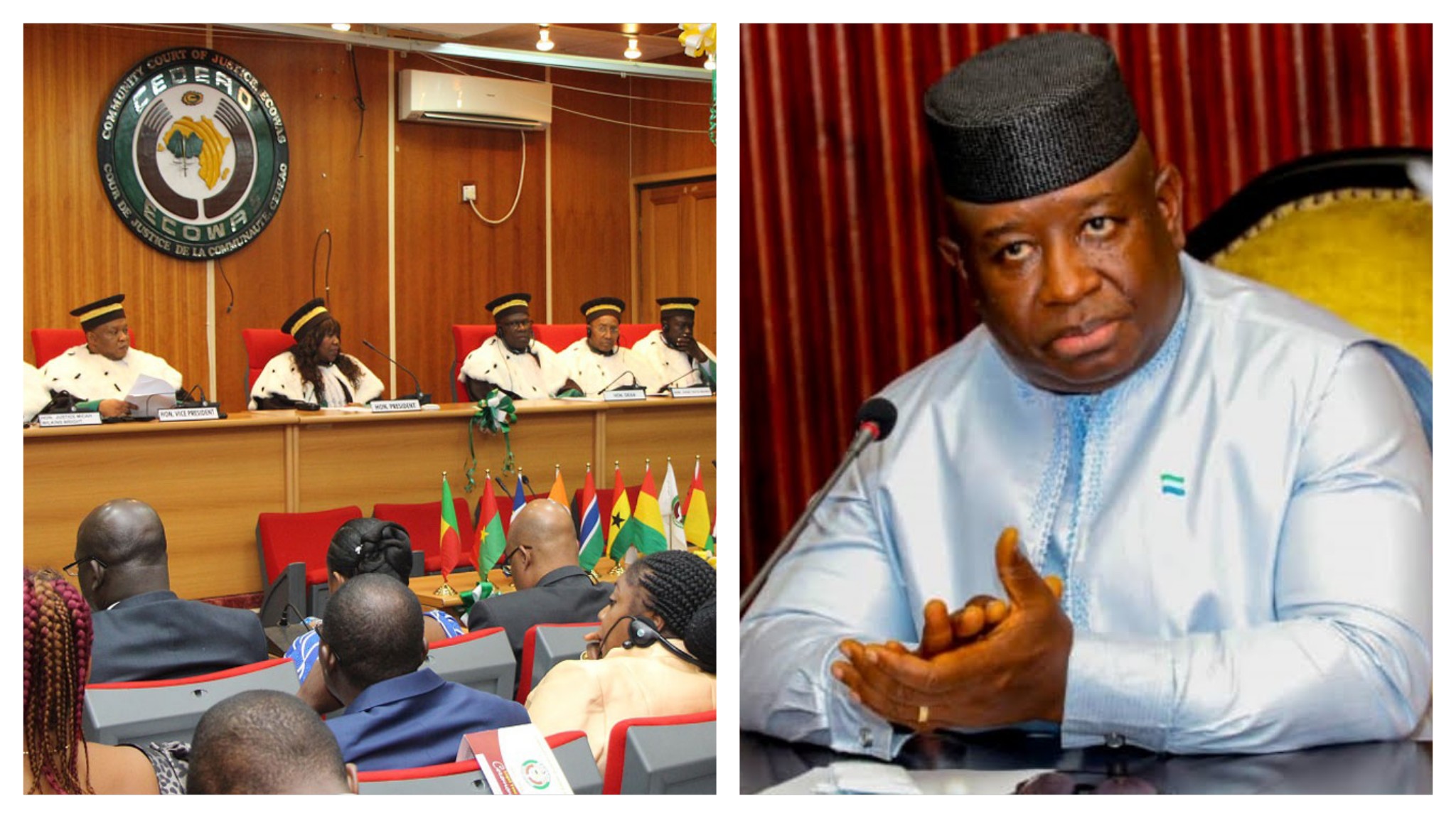
The Economic Community of West African States (ECOWAS) Community Court of Justice has ruled against Sierra Leone in the “Mohmed Morlu v. Republic of Sierra Leone” case. The judgment, delivered on 28 February 2024, found Sierra Leone accountable for breaching multiple rights of Mohmed Morlu, a former student at Njala University.
The court concluded that Sierra Leone violated Mr. Morlu’s rights under the African Charter on Human and Peoples Rights, the International Covenant on Civil and Political Rights, and the Convention Against Torture (CAT). The ruling further mandated Sierra Leone to provide monetary compensation to Mr. Morlu, marking a significant milestone in the pursuit of police accountability within the country.
The case, initiated by Mr. Morlu with the support of AdvocAid and IHRDA in August 2022, stemmed from an incident during a peaceful student protest in Bo in March 2017. Mr. Morlu sustained injuries from police gunfire, prompting allegations of violations of his rights to personal security and freedom from torture.
Following the judgment, Mr. Morlu expressed relief and gratitude, stating, “After 7 years of living with the effects of this painful incident with no one being held responsible, I am relieved and grateful for the ECOWAS Court’s decision. This victory gives hope to other victims of police brutality that justice is attainable.”
Eleanor Thompson, legal counsel for Mr. Morlu, emphasized that the case aimed not only to address the harms suffered by Mr. Morlu but also to remind the State of its obligations under various human rights treaties. She highlighted the systemic issues of law enforcement agents’ use of lethal force against citizens exercising their rights peacefully.
AdvocAid Executive Director, Ms. Alison French, welcomed the judgment, stating, “This reaffirms the principle that no one is above the law, including law enforcement agencies. It sends a clear message that police violence and misconduct will not be tolerated, and the State must ensure that its law enforcement agents respect and protect the human rights of all civilians.”
Emilia Siwingwa, IHRDA Executive Director, praised the decision as setting a progressive standard for policing and human rights not only in Sierra Leone but also throughout the sub-region. She highlighted the critical role of civil society in holding governments accountable and safeguarding human rights.



